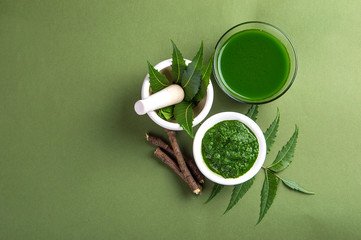Understanding Diabetes and Acidity in Ayurveda
Ayurvedic Remedies for Diabetes and Acidity: Natural Solutions for Better Health
Understanding Diabetes and Acidity in Ayurveda. In the quest for natural solutions to prevalent health issues like diabetes and acidity, Ayurveda offers time-tested remedies that not only alleviate symptoms but also promote overall well-being. This comprehensive guide explores Ayurvedic perspectives on managing diabetes and acidity, focusing on effective treatments and lifestyle adjustments.

Understanding Diabetes and Acidity in Ayurveda
Diabetes: A Dosha Imbalance
According to Ayurveda, diabetes (Madhumeha) is primarily caused by an imbalance in the Kapha and Pitta doshas. Kapha imbalance leads to excess weight and sluggish metabolism, while Pitta imbalance affects insulin production and glucose metabolism. Ayurvedic treatments aim to restore dosha balance through diet, lifestyle modifications, and herbal remedies.
Acidity: A Result of Agni Imbalance
Acidity (Amlapitta) arises from an imbalance in the digestive fire (Agni), particularly due to aggravated Pitta dosha. This imbalance leads to symptoms such as heartburn, acid reflux, and indigestion. Ayurvedic treatments focus on pacifying Pitta and enhancing digestive function to alleviate acidity naturally.
Ayurvedic Treatments for Diabetes
Herbal Remedies
- Gudmar (Gymnema Sylvestre): Known as the “sugar destroyer,” Gudmar helps regulate blood sugar levels and improves insulin sensitivity.
- Bitter Melon (Momordica Charantia): Rich in charantin, bitter melon helps lower blood glucose levels effectively.
Diet and Lifestyle Modifications
- Balanced Diet: Emphasizes whole grains, vegetables like bitter gourd and fenugreek, and lean proteins.
- Yoga and Exercise: Promotes physical activity to improve insulin sensitivity and manage weight.
- Stress Management: Techniques like meditation and pranayama help reduce stress, which can affect blood sugar levels.
Ayurvedic Remedies for Acidity
Herbal Remedies
- Amla (Indian Gooseberry): Rich in vitamin C and antioxidants, amla soothes the stomach lining and reduces acidity.
- Licorice (Glycyrrhiza Glabra): Known for its cooling properties, licorice helps in reducing acid production in the stomach.
Diet and Lifestyle Modifications
- Avoid Trigger Foods: Spicy, fried foods, caffeine, and alcohol exacerbate acidity.
- Eat Mindfully: Chew food thoroughly and avoid overeating.
- Herbal Teas: Drinking teas like mint or chamomile can soothe the digestive tract.
Integrating Ayurveda into Daily Life
Ayurvedic Principles
- Personalized Approach: Ayurveda emphasizes individual constitution (Prakriti) and tailors treatments accordingly.
- Seasonal Adaptation: Adjustments in diet and lifestyle based on seasonal changes help maintain balance.
Seeking Professional Guidance
Consulting with an Ayurvedic practitioner ensures personalized treatment plans aligned with your specific health needs. They can recommend appropriate herbs, therapies, and lifestyle modifications tailored to manage diabetes and acidity effectively.
Conclusion
Ayurveda offers a holistic approach to managing diabetes and acidity, focusing on restoring balance within the body through natural remedies and lifestyle adjustments. By integrating Ayurvedic principles into daily life, individuals can achieve better health outcomes and enhance overall well-being. Embracing these ancient practices not only treats symptoms but also promotes long-term health benefits, making Ayurveda a valuable complement to modern healthcare.
For those seeking natural alternatives to manage diabetes and acidity, Ayurveda provides a wealth of solutions rooted in centuries-old wisdom. By embracing these remedies and principles, individuals can embark on a journey towards improved health and vitality, guided by the timeless wisdom of Ayurveda.









Leave a reply